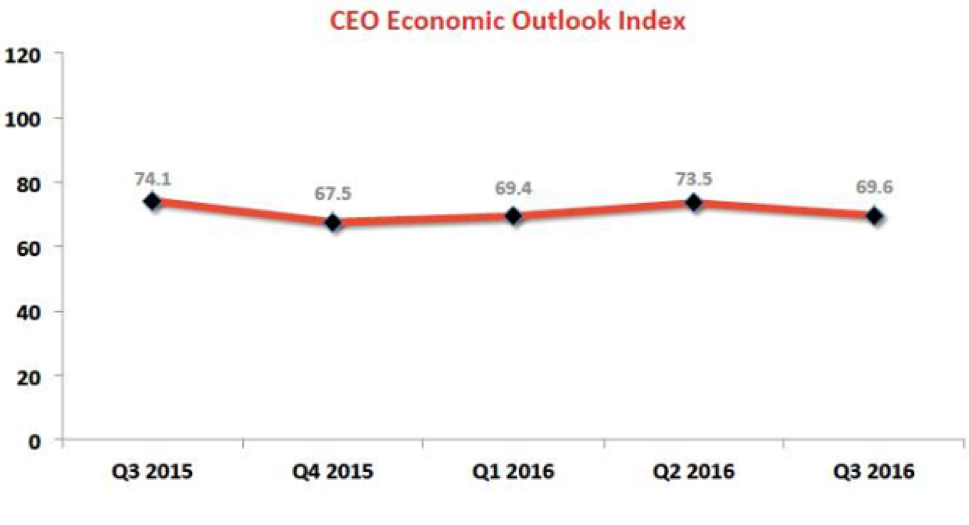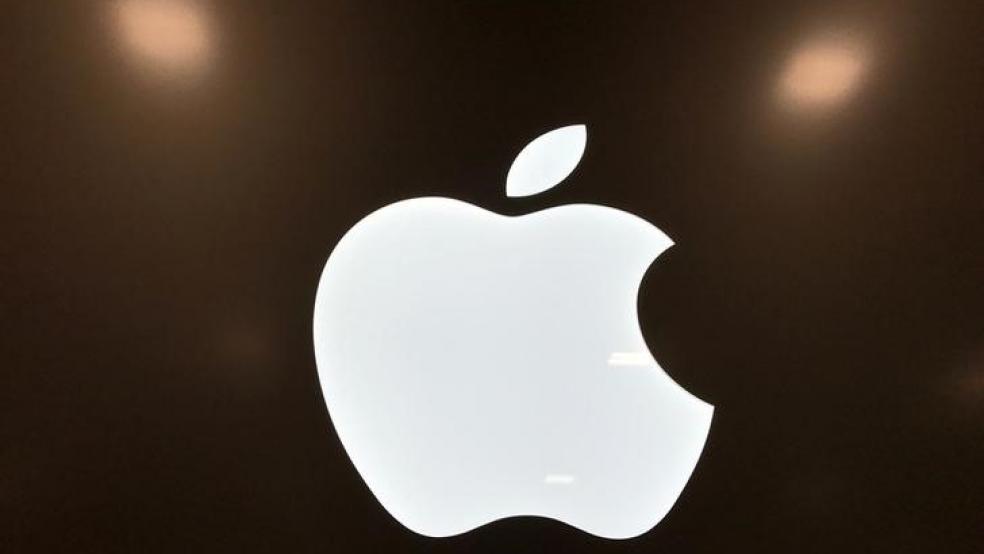Amid uncertainty about the outcome of the November election and the fate of major trade and tax reform issues, the nation’s top business leaders are projecting relatively lackluster growth in the economy for the rest of the year, with low expectations for sales, hiring and capital investment.
The Business Roundtable CEO Economic Outlook Index — a composite of CEO projections for business activity and expansion that was released on Monday – registered 69.6 in the third quarter, a decline of 3.9 points from the previous quarter. The CEO’s lower expectations for sales, unchanged outlook for capital spending and slight dip in hiring plans all point to “sluggish” economy.
The 144 business leaders surveyed last month generally agreed that gross domestic product would grow 2.2 percent in the fourth quarter, a slight uptick from previous estimates for economic expansion in 2016 and roughly in line with forecasts of the Congressional Budget Office and blue-chip private financial industry analysts.
Related: How Higher Wages Could Sink the Economy
The economic outlook indexes range between -50 and 150, with a reading at 50 or above indicating economic expansion and anything below 50 indicating an economic contraction.
Doug Oberhelman, chairman and CEO of Caterpillar and chairman of the Business Roundtable, noted that throughout the past year, the outlook has consistently remained below its long-term average of 79.6, yet still remained high enough to suggest that the long-term recovery was still alive.

“This reflects the unfortunate new normal — where the U.S. economy is pretty much stuck in neutral rather than moving forward,” he said Monday. “The continued lack of action on an aggressive pro-growth policy agenda that includes tax reform, trade expansion and a smarter approach to federal regulation contributes to an economy that continues to perform below its potential.”
Oberhelman and John Engler, president of the Business Roundtable, agreed that part of the problem stems from uncertainty over the outcome of the presidential campaign and the willingness of the next president and Congress to seek bipartisan approaches to key issues, including tax reform and trade.
Related: It’s the Economy, Donald: Trump’s Last, Best Hope
One of the group’s top priorities is seeking Senate ratification of the highly controversial Trans-Pacific Partnership trade agreement, the signature trade initiative of President Obama. However, Republican presidential nominee Donald Trump and Democratic nominee Hillary Clinton are both opposed to the treaty, as are many lawmakers on Capitol Hill. The prospects for approval before Obama leaves office are next to nil.
Business Roundtable officials said during a media briefing that there was no way to accurately gauge what impact the political uncertainty and turmoil in the U.S. and overseas is having on the business communities’ economic outlook, but said there is little doubt it is a factor.
“At this time, as in every election cycle, there’s always a degree of uncertainty, particularly when there’s open presidency, as there will be in January, Oberhelman said. “So I would say that while we can’t measure that and we don’t have any direct way of knowing how much that is, that certainly plays into this.”





